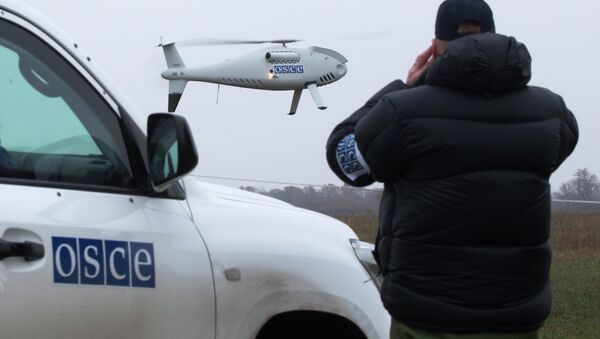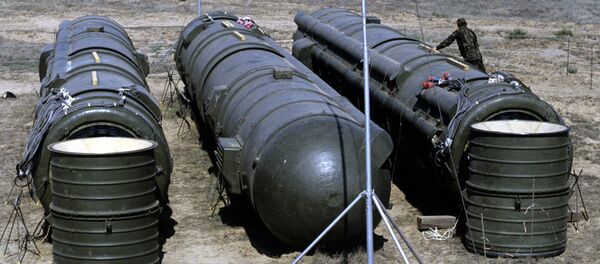The development of the European MALE type (Medium-Altitude Long-Endurance) unmanned combat aircraft began in 2009 as the Talarion project, which later transformed into the MALE RPAS programme (Medium Altitude Long Endurance Remotely Piloted Aircraft System). A trio of companies from Spain, Germany, France, and Italy are working on this joint project, and as of late from the Czech Republic as well.
Sputnik has discussed the EuroDrone project and the role of the Czech Republic in it with Stanislav Mackovík, former KSČM Member and Member of the Committee on Defence in the Czech Republic´s Chamber of Deputies.
Sputnik: The Czech Republic has become a participant in the European unmanned aerial vehicle EuroDrone project. Is this participation profitable for the Czech defence industry?
Stanislav Mackovík: So far the Czech Republic's participation in this project has been rather declarative. And here I have to quote word-for-word the press release by the Ministry of Defence and Armed Forces of the Czech Republic, which states the following: "Negotiations on the European MALE RPAS project (Medium Altitude Long Endurance Remotely Piloted Air Systems) are underway, which is led by Germany, and which has been joined by France, Italy, Spain, and the Czech Republic. Belgium, Finland, Hungary, Holland, Poland, and Portugal are observers.
It is expected that its financing will be carried out within the framework of the European Defence Fund (EOF)".
Media sources were just noting that the company Aero Vodochody has not yet received an official proposal to take part in the project. Evidently, nothing is known about the participation of our arms companies. Most likely, we are talking about the preparation of a legislative and logistical base for the deployment of drones. But in the future, we cannot exclude, for example, the mounting of our reconnaissance and navigation tools on the drones.
READ MORE: Nazi Past, NSA Uproar: Activist Sheds Light on Germany's Opposition to Drones
For now, however, everything is primarily aimed at ensuring these drones can fly in our airspace. Our Ministry of Defence is not even financially participating in the project and the government did not assume any obligations to buy drones for its own needs.
The involvement of our industry in the entire project is only hypothetical in nature and it is impossible to speak of any benefits to the Czech Republic at the present time.
Sputnik: What is your view on the EuroDrone project itself?
Stanislav Mackovík: The use of unmanned aerial vehicles (UAV) for military and civilian needs is logical. Technology allows you to fly high, far, and for a long time. The data obtained is of high quality and can be used in real time.
The UAV is to be equipped with two engines and its layout was presented in April of this year at the Berlin Air Show. This means that it is more of an intention than of reality.
The EU wants to get this technology within 7 years, something that countries in NATO already have. It would seem that we are talking about competition with American manufacturers. But the United States occupies a dominant position both in NATO and in influencing decision-making in the EU, especially where defence policy is concerned. The EuroDrone project will exist as long as it is in the interests of the United States: so poor is the policy within the EU.
Sputnik: Has the Czech Republic taken part in the project with the intention of further acquiring a drone at a discount?
Stanislav Mackovík: A joint development agreement should be signed in 2019. Representatives from the Czech Republic will also be present. For us, the designed drone is quite large.
READ MORE: German MoD to Request Approval for Armed Combat Drone Program
According to the information available, the purchase of drones of this size for our army is not planned. Such a large apparatus for strategic intelligence will not be cheap either, and therefore, I believe, our country will serve only as a territory for its deployment.
The views expressed in this article are those of the speaker and do not necessarily reflect those of Sputnik.




